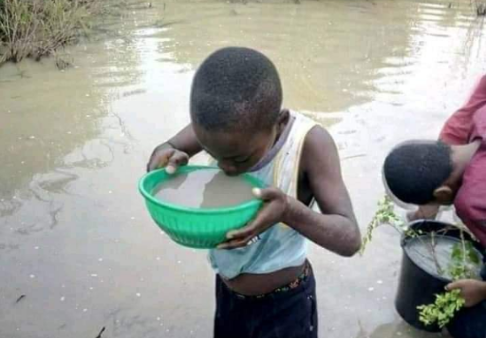
Nigeria, Kenya or Cameroon? No, this child was photographed drinking dirty water in Ghana
- This article is more than six years old.
- Published on February 28, 2019 at 21:37
- Updated on February 28, 2019 at 21:37
- 2 min read
- By Charlotte MASON, Camille MALPLAT
This version of the photo tweeted on December 5, 2018 shows the boy with the caption, ‘As seen somewhere in the North Eastern part of Nigeria. Very sad!’
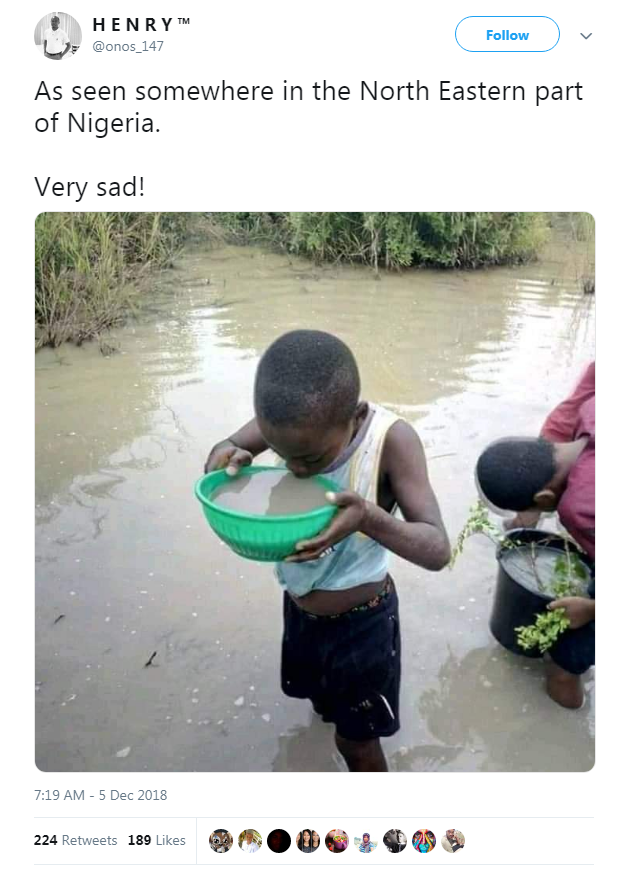
Another Twitter account also said the photo was taken in the country.
Other social media posts say the picture was taken in Kenya, like this version on Instagram, in Cameroon, like this tweet, in Benin or Ivory Coast.
But a reverse image search on Google reveals the photo had already been posted on Facebook on November 21, 2018. That post calls on Ghana’s First Lady Rebecca Akufo-Addo to help provide clean water in Akpatoeme, a village near the border with Togo.
“Mother of the nation, everybody in this village ‘Akpatoeme’ in the Ketu North municipal is exposed to health hazard as their only source of water is not safe for consumption purpose, please we need your help,” the caption reads.

The man who published the post, Ahiabli Ernest, told AFP he took the photograph. He also sent AFP more photos which he said were taken by his sister, which resemble the one posted on Facebook.
The villagers had been drinking contaminated water since their water pump stopped working last August, he said.
Circled in blue in the image below, we can see the boy in a light-coloured vest with his green bowl.
In the yellow rectangle, Ahiabli Ernest can be seen standing next to the girl in the bright-coloured dress, in the green square.
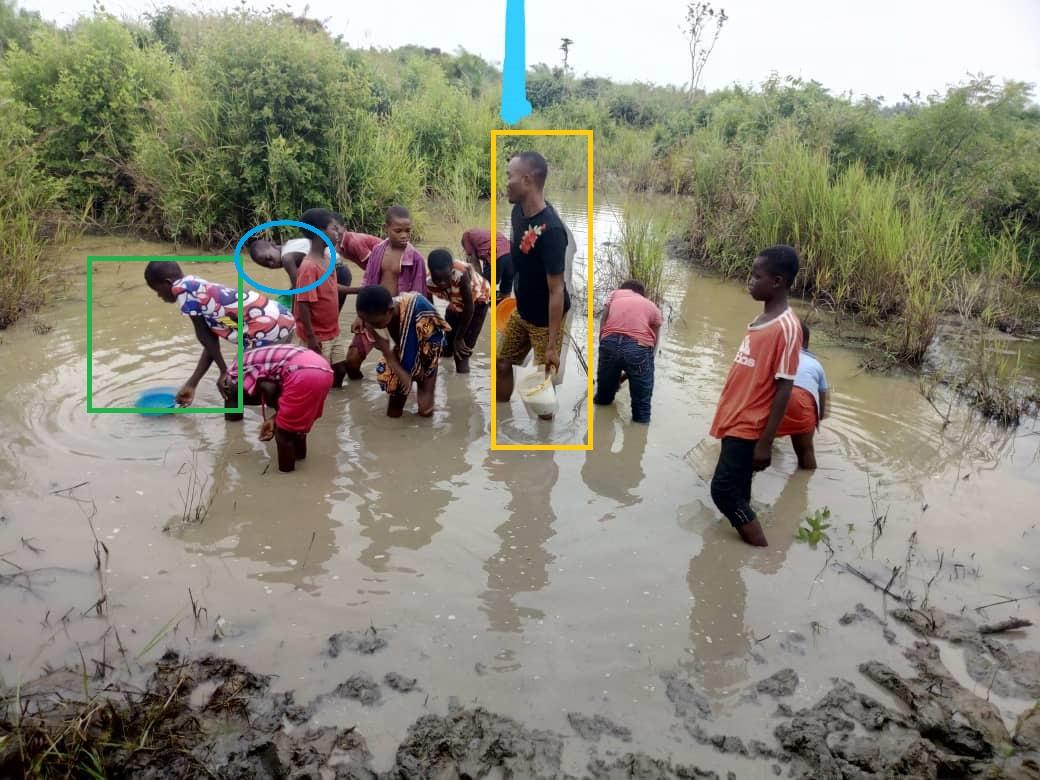
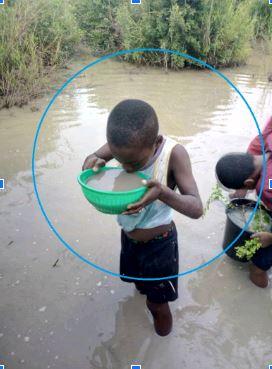
Ahiabli is recognisable from his Facebook profile pictures.
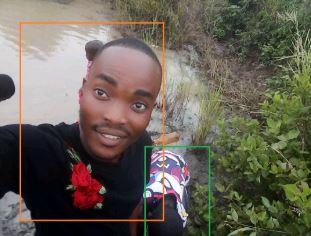
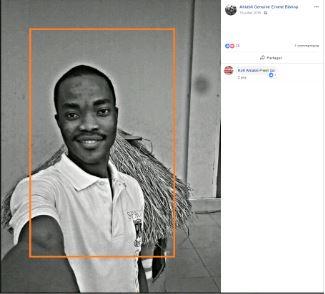
“This is not Cameroon. This is my village,” Ernest told AFP. “We urgently need help. My people are truly in pain. A friend of mine wrote an article on it but we are not hearing anything.”
In rural Ghana, just 66 percent of people have access to “basic drinking water services”, according World Bank figures from 2015. In urban areas, 88 percent of people have access to clean water.
Copyright © AFP 2017-2026. Any commercial use of this content requires a subscription. Click here to find out more.
Is there content that you would like AFP to fact-check? Get in touch.
Contact us
